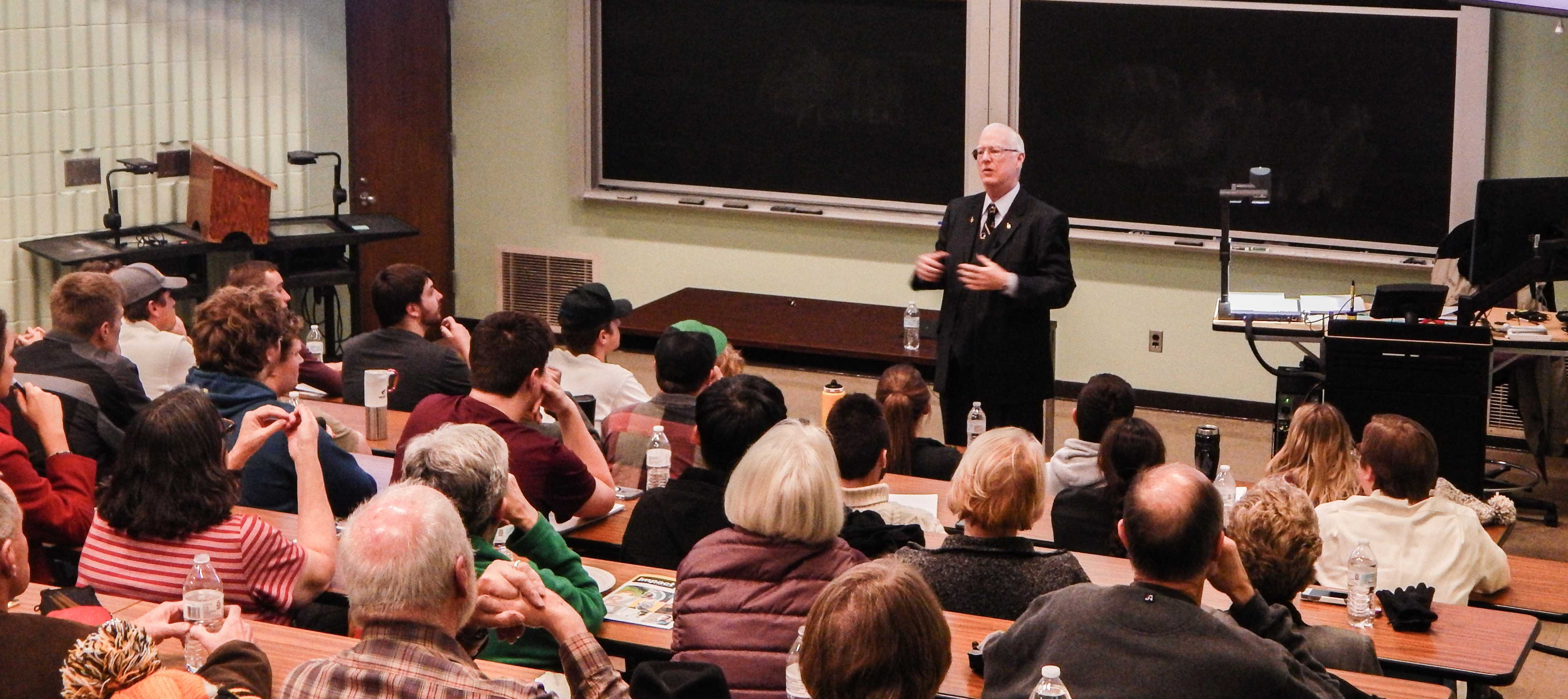On Thursday, Nov. 16, Michigan Tech’s own Professor Paul Nelson put on a most interesting lecture about competition in the current economy. This lecture, titled “The Current State of Competition in the US,” was sponsored by MTU’s Economics Club and School of Business. The lecture was open to the public, and thus the crowd that gathered consisted partially of students and the rest of interested local residents. Over the course of an hour and a half, Nelson covered the current competition of U.S. companies, or a lack thereof, and how economics is really a study of incentives.
Nelson stated that when it comes to competition in economics, there are two views to it. The first is from the consumer’s point of view, where more competition means lower prices and better service. This differs greatly from the other point of view, the business firms, who see greater never-ending effort for minimal reward as a result of more competition; thus firms are incentivized to grow their share, or how much they produce in the entire market. A higher concentration of one firm’s shares leads to poor outcomes for consumers. When a firm has a great enough hold on a market with their high share, they are allowed to raise prices at will and are less responsive to their customers. These massive firms allow for less consumer economic freedom as fewer choices become available, and they are also allowed greater influence on the government when it comes to impacting legislation and elections.
These are just a few of the many horrible realities powerful, large firms result in as Nelson pointed out. One massive firm that has a scary amount of control is the household name Disney. Disney is one of the six companies that own over 90% of US media, which is the greatest concentration the industry has seen in recent history. Most famous for the cartoon character Mickey Mouse, Disney has also successfully lobbied for the public domain entry age to be pushed back numerous times, leading to all copyrighted material being essentially cover for decades more than originally intended. The Mouse owns (besides the many Disney originated child companies such as Radio Disney) ESPN, Marvel Entertainment, ABC, ABC Family, Buena Vista Records, LucasFilm, and many more. On top of that, Disney indirectly owns the child companies of their child companies. Unfortunately, this is merely the tip of the iceberg of giant corporations that loom ever-present in the current U.S. economy with an answer that isn’t well perceived by the people.
Many people view antitrust laws as being anti-business, that they break up good companies or that they’re another awful way that the government influences the economy. Nelson views this as untrue, it is actually a way to give smaller firms a fighting chance to strive in what would be otherwise concentrated markets that would smother them in their cribs. Hopefully, with time and education, people will come to realize these issues and help mobilize support to fix said issues at a political level.


